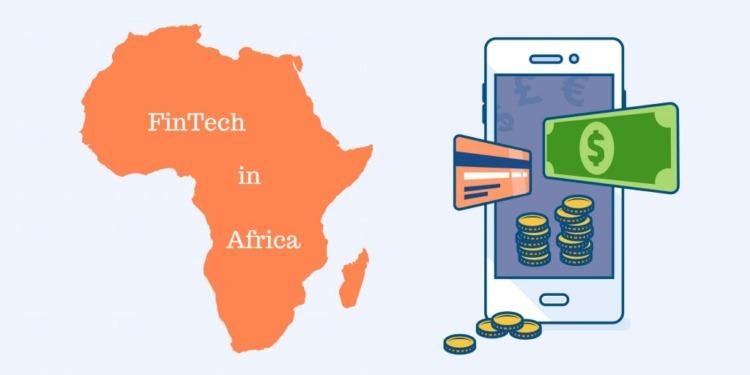Financial technology (FinTech) is a major force shaping the structure of the financial industry in sub-Saharan Africa. New technologies are being developed and implemented in sub-Saharan Africa with the potential to change the competitive landscape in the financial sector.
In an area that traditionally suffered limited access to financial services such as Credit, insurance, and banking Financial technology [FinTech] has aided in accelerating financial inclusion in this sub-Saharan Africa region.
While the bell has long been chiming for businesses to rapidly adapt, harness the power of data and streamline their digital processes, COVID-19 reprioritized the need for these capabilities. It made these elements of digital strategy essential, and at a frightening pace.
The Fintech sector in Africa has since rapidly emerged with more and more startups coming up as compared to other years. As consumers avoided touching cash or point of sale devices, digital payment usage increased dramatically and continues to do so. Payments are really at the heart of any financial business.
And as Eric Osiakwan, the Managing Partner of Chanzo Capital says Africa is at a critical inflection point.
“The digital economy is being created by innovative young entrepreneurs who are using digital technology to solve pain points , reduce friction, fix bottlenecks, or disrupt entire industries.”
To him, Kenya, Ivory Coast, Nigeria, Ghana, and South Africa make up the “KINGS” of Africa’s digital economy.
He says that investment in these regions has grown drastically with sectors such as Fintech, eCommerce, Healthtech, Agtech, Edtech, Mediatech, Logisticstech, Deliverytech leading the pack.
Also Read: Healthy investment: Now is the time!
The emergence of Fintech companies in Africa has disrupted the way of doing things, it has not only changed the traditional ways of doing through innovation but also scaled up offering diverse services.
According to BriterEYE’S tracker, via Chanzo Capital a sectoral monthly breakdown from January to May this year showed that Fintech companies in Africa were the highly funded raising as much as 9 times more than those in health tech which stood in the second position as most funded.
Notably, there are 643 active tech hubs across the Africa continent, African fintech firms predominantly operate within their country of origin or regionally as shown in the figure below.
Population
With the growing Africa population, it is approximated that it will likely continue to utilize the region’s rising cellular and internet penetration and adopt emerging digital payment, banking, insurance, and lending services according to graphical illustrations shared in this publication by Chanzo Capital.
The 21st Century is characterized by increasing digitalization. As more and more everyday services move online, ‘offliners’ risk being excluded in an era that embraces fast-changing innovation in digital technology.
This predominantly concerns older persons who are less digitally connected than youth who were born into the digital age.
A fast-growing population, the expanding middle class, and the significantly underdeveloped financial services industry, signal the region’s burgeoning demand for digital financial technologies.
For African consumers, fintech innovations provide access to vital financial services and so improving the penetration of telecommunications infrastructure, will continue to enable equitable access to finance for all Africans.
Unicornization of Africa digital banks
Amidst the Covid -19 pandemic where elite nations were speeding efforts to help prevent the spreading of the highly infectious disease for two African FinTech businesses, it was a blessing in disguise. the two companies gained unicorn status. The latest statistics on the valuation of key Africa fintech players show an upsurge in numbers.
As of March 2021, Airtel Africa announced it had received a billion-dollar valuation of $2.7B making it the latest African unicorn. Flutterwave from Nigeria also announced a valuation exceeding a billion-dollar. The figure below shows the estimates in Valuation against the year.
In the tech world hitting a billion-dollar valuation is a big deal you earn the name Unicorn, a mythical animal that represents the statistical rarity of successful ventures coined in 2013 by Aileen Lee of Cowboy Ventures.
Most global technology companies strive for unicorn status preferably before they go public and given that the Africa tech ecosystem is maturing we are now seeing the manifestation of this mythical animal.
With the addition of Airtel Money and Flutterwave, Africa now has six fintech unicorns making fintech the leading sector in Africa’s digital economy.
The other four are Fawry, a local Egyptian payment company that was listed on the Egyptian Stock Exchange in 2019, that started as a gazelle and became a unicorn last year at the height of the pandemic.
This is a strong case study that highlights a firm’s ability to start small and gradually advance to become a big giant.
Safaricom and Vodacom well demonstrated Unicornization in East Africa, while the Kenyan-based telecommunication service provider acquired MPESA, Egypt processed more than $12B in transactions, from Vodafone last year during the pandemic. MPESA is widely used in several countries; Kenya, Tanzania, DRC, Mozambique, Ghana, and Lesotho.
Mobile Money [MoMo] has been changing the dynamics of transaction metrics in Africa as the digital economy is spreading to greater achievement through Fintech.
In the past, commercial banks have struggled to introduce electronic payment systems like debit and credit cards, however, MoMo from the Mobile Network Operators (MNOs) came from nowhere as a surprise in Kenya.
Going forward, mobile money can accelerate the inclusion of users into the formal financial system by integrating mobile money and other financial services providers. In Kenya, mobile network operators partner with banks, creating a hybrid system that offers access to formal savings, loans, and insurance products such as Safaricom’s M-Shwari, which provides access to savings accounts and instantaneous micro-credit products.
FinTech represents a disruptive competitive force that will have a major role in shaping the structure of the financial industry.
READ; Evaluating the role of Private Equity in Africa’s tech front-runners, the KINGS
